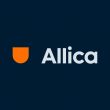Money 20/20 Europe: Mastercard’s open banking guru on payments and data
FinTech Futures sat down with Jim Wadsworth, senior VP of Open Banking at Mastercard, at Money 20/20 Europe in Amsterdam to discuss working with fintechs, open banking, becoming a paytech and safeguarding customer data.

Jim Wadsworth leads open banking at Mastercard
FinTech Futures: How does Mastercard, as one of the giants, leverage the nimbleness and agility of fintechs in the payments ecosystem?
Jim Wadsworth: Firstly, we think it’s very important that we stay close to, work with, and encourage the fintech community. For example, we have a programme called Start Path, which runs worldwide. That’s really all about talent spotting, finding the brightest and best start-ups in a variety of relevant areas.
And sometimes we also work with and incorporate those fintech services within what we’re doing. One example of that is a business called Konsentus, which is a UK-based regtech. It came through the Start Path programme and we were one of the original investors in their first fundraise.
When we see products and services out there that are a good fit with what we’re trying to achieve sometimes we’ll build stuff, but sometimes we’ll absolutely partner and leverage some of those great fintech services that are out there. So, it’s a whole range of approaches. We want to stay very close to that ecosystem because there’s so much creativity, so much wonderful stuff happening that we need to be close to.
What new technologies are you most excited about at the moment that you think are transforming or could transform payments?
My area focuses on open banking. From relatively small beginnings for Mastercard three or four years ago, it’s now probably one of, if not, the biggest area of investment for the firm.
We’ve got upwards of more than 1,300 people focused on the topic across Mastercard Worldwide which is reflective of its importance to the financial services landscape, both the payments elements and in terms of data.
If you think about Mastercard, it’s not just a card technology business. We are very explicitly a payments technology business. I happened to join the company through the acquisition of a business called Vocalink in the UK, where Vocalink runs both the account to account networks and the faster payment system, which is essentially real-time account to account.
With that acquisition, we made it very clear that we love and care about card volume and making and providing all sorts of great services for the cards industry, but we also care as much about things like account to account payments. Open banking is a very logical extension of that as far as payments is concerned.
But we also think the data aspects of open banking, as it has evolved into open finance, is extremely important. We refer to what we’re doing in open banking worldwide as helping to build a new data network.
One of the big areas we think in terms of value that will come out of open banking is improving access to credit, whether that’s for a consumer or for a small business. We acquired a business in the US that’s an open banking aggregator for the US market. But it’s also amazingly strong at taking that open banking data, slicing and dicing it and packaging it up in ways that’s useful for lenders. It brings together transaction histories and balances but it’s also connected to non-financial sources of data such as payroll, which validates somebody’s employment status.
How important is data privacy to Mastercard, what infrastructure and policies do you have in place to protect what is quite valuable data?
After health records, financial data is clearly some of the most sensitive personal information there is and protecting it is core to what we do.
About two years ago we updated our data responsibility principles and when it comes to any sort of product or service that we’re creating, we absolutely live by those regardless of external national government regulations. We apply these very high standards which tend to not just meet regulatory obligations, but often exceed them.
Because it’s such a fundamental thing, trust is everything in this business. We did some market research about 18 months ago, which was a worldwide piece of work. In terms of open banking, people’s willingness to engage in open banking services was around 63%, I believe. But the caveat was that the open banking service comes from a counterparty the consumer trusts.
Trust is very hard to gain and very easy to lose. So we work very hard to make sure the work that we’re doing, when it comes to the fundamental issue of privacy and control, everything is driven by informed and explicit customer consent. It’s integral to how we design our products worldwide.











































